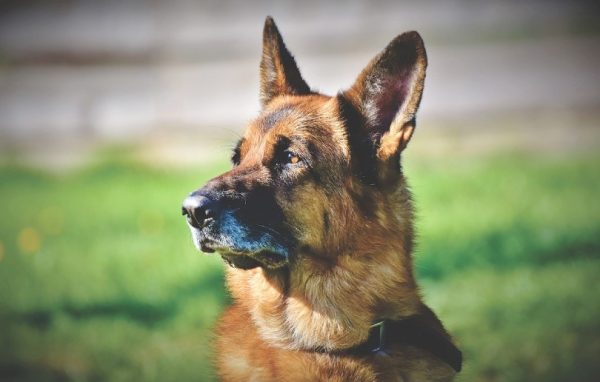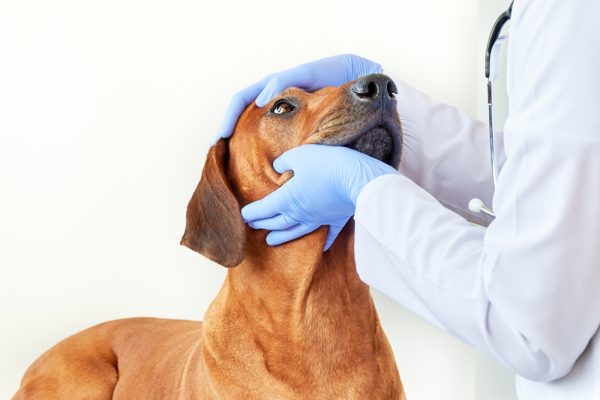At some point in your dog’s life, you’re likely to hear their stomach gurgling, rumbling, and churning. This is very similar to the stomach noises we make ourselves, though you might be taken aback by your dog’s stomach making such loud noises. But are these belly growls a reason to be concerned? Most of the time, it is the result of normal digestive processes and will settle down within several hours. Other times, it can be a sign of an underlying disease process. This article will investigate why your dog’s stomach is making noises, seven common causes, and when you should seek veterinary attention for your canine friend.
If you need veterinary advice for your pet, we recommend PangoVet’s TeleVet service. You can have a video consultation with a real veterinarian from the comfort of wherever you are, no travel needed. PangoVet’s vets can provide you with personalized care and advice, and hopefully help ease your mind.

If you want to speak with a vet online, head to PangoVet and get the personalized advice you need for your pet — all at an affordable price!
Please note that PangoVet does not offer prescriptions and is not for medical emergencies.

The 7 Reasons Your Dog’s Stomach Is Making Loud Noises
Your dog’s loud stomach noises are referred to in veterinary and medical circles as “borborygmus.” They are the result of air and fluid moving through the digestive tract in a process called peristalsis. Peristalsis is the rhythmic, wave-like contraction of the smooth muscle lining the stomach and bowels, and its purpose is to move food and fluid from one end of the digestive tract to the other.
While we commonly refer to them as “stomach noises,” the sounds you hear are just as likely to originate from the small or large intestines. If you’ve noticed your dog’s abdomen making noises, either louder or more frequently than normal, what could be causing it?
1. Hunger
Yes, hungry dogs make stomach noises just like we do. When dogs get hungry, their stomach releases digestive enzymes or “juices” in preparation for the next meal. This fluid, combined with a mostly empty stomach, can make audible sounds in your dog’s belly. These rumbles and squeaks should subside when your dog eats their next meal.
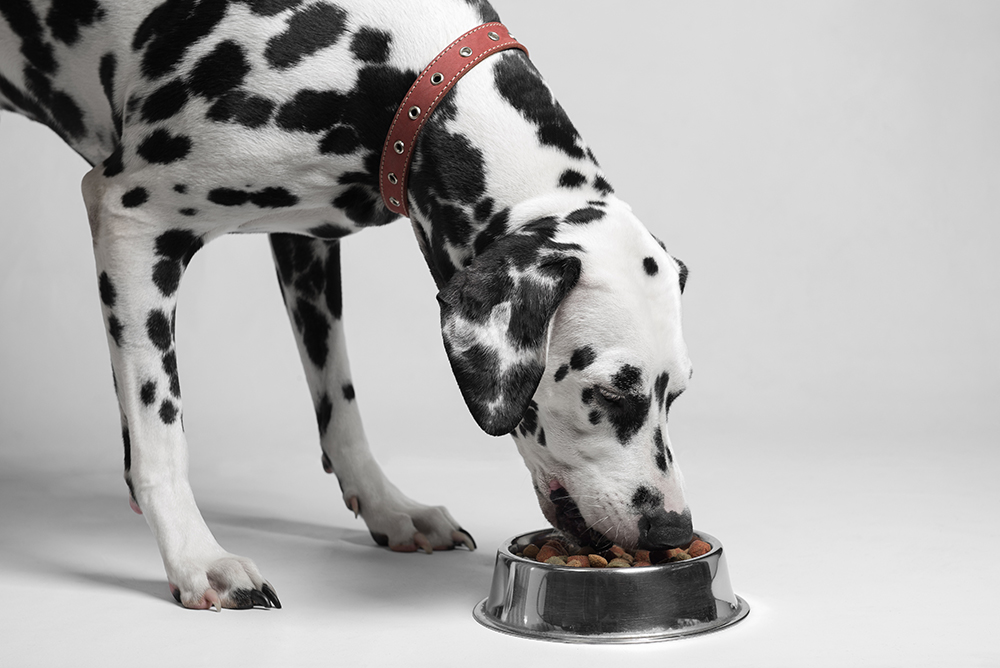
2. Air Ingestion
When dogs eat too fast or pant for a long period of time, they swallow air. The increased volume of gas in the stomach can cause burping, but it can also cause loud stomach noises. The muscular lining of the stomach contracts in an effort to move the gas through to the bowels, resulting in noticeable stomach noise.
3. Diet
Many dogs are used to eating the same food every day, and their stomach gets used to it too. If you change your dog’s diet, or if they’ve mischievously scavenged something unsavory, their stomach has to adapt to this new food. The result of the stomach working harder to digest the new food and often producing more gas in the process is an increase in stomach noises.
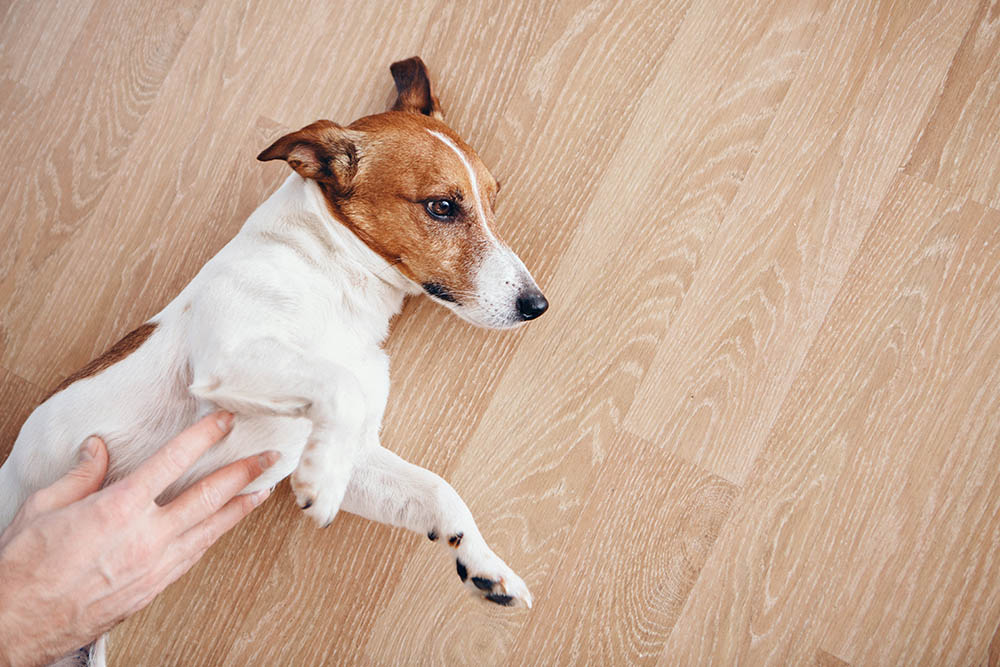
4. Digestive Disease
The four causes of increased stomach noises described above are relatively benign. They are the result of normal digestive processes or changes, and will often diminish with time. However, stomach noises can also be a warning sign for more concerning digestive diseases.
- Inflammatory bowel disease (similar to IBS in humans)
- Pancreatitis (inflammation of the pancreas)
- Exocrine pancreatic insufficiency (lacking digestive enzymes)
- Gastrointestinal infections (viral, bacterial, or protozoal)
- Gastrointestinal obstruction (ingestion of a foreign body, such as a rock or toy)
5. Diarrhea
Diarrhea occurs when the stools are looser or more liquid than normal. Inflammation in the bowels often leads to increased peristalsis and, as a result of this, increased gut sounds. There are many causes of diarrhea, ranging from infections and food allergies to diet changes and hormonal disease. If you have noticed significant stomach noises suddenly coming from your dog, it could be a sign that diarrhea is imminent.
6. Medications
All medications are prescribed with the purpose of fixing a medical problem. However, all medications can also cause an upset stomach. Antibiotics, anti-inflammatories, and many other medications can all lead to increased stomach noises.
7. Bloat
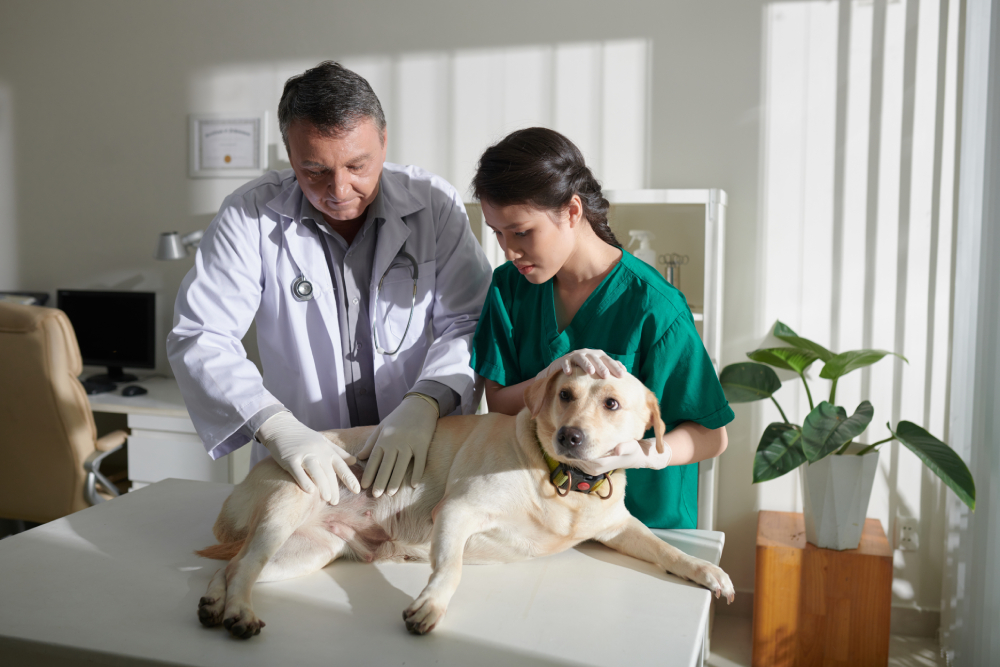
Bloat is the most concerning cause of increased stomach noises. The technical term for this condition is “gastric dilatation and volvulus” or “GDV.” In this condition, the stomach suddenly distends and twists on itself, cutting off its blood supply. Large and giant breed dogs with a deep chest are most commonly affected by GDV. Early signs are retching and increased stomach noises, but the problem quickly progresses to cause a large, bloated abdomen and life-threatening sepsis.

Conclusion
If you notice your dog’s stomach making loud noises but he or she appears otherwise completely fine, it is reasonable to take a “watch and wait” approach. The sounds may reduce and then disappear. However, if your dog has increased stomach noises and is showing signs of being unwell, you should arrange to have them checked over by a veterinarian. Common signs of illness include vomiting, diarrhea, loss of appetite, or labored breathing. And, of course, if you notice your dog’s abdomen distending, seek veterinary care immediately.
See Also:
- When to Take Your Dog to the Vet: Emergencies Reviewed (Vet Answer)
- How to Prevent Bloat in Dogs: Vet-Verified Facts & FAQ
Featured Image Credit: DimaBerlin, Shutterstock





